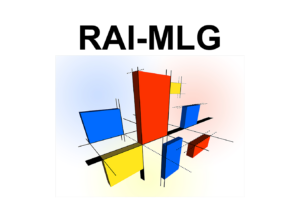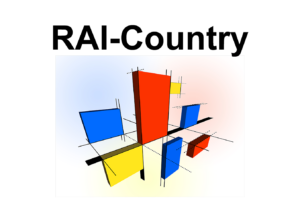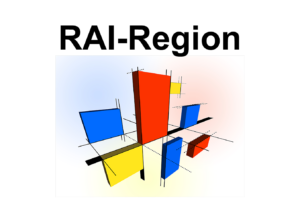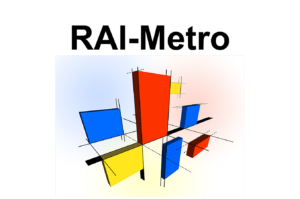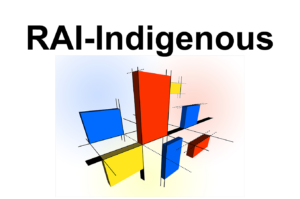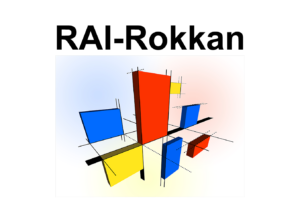Regional Authority
Last updated: May 16, 2021
The Regional Authority Index (RAI) measures the authority in self rule and shared rule exercised by regional governments within their countries. Release Version 3.1 expands geographical coverage from 81 to 96 countries (including China, India, Pakistan, Ukraine), extends temporal coverage from 1950 through 2018, and covers metropolitan and indigenous regions alongside conventional regions. Scoring is annual and the unit of analysis is the individual region. Version 3.1 corrects some errors from Version 3.0 which was released in February 2021.
Country Profiles

A brief history of regional governance in each country, explanation of coding decisions, and sources. Please contact Liesbet Hooghe or Arjan Schakel with data queries.
Bahamas (1973-2018)
Barbados (1966-2018)
Belize (1981-2018)
Bolivia (1950-2018)
Brazil (1950-2018)
Canada (1950-2018)
Chile (1950-2018)
Colombia (1950-2018)
Costa Rica (1950-2018)
Cuba (1950-2018)
Dominican republic (1950-2018)
Ecuador (1950-2018)
El Salvador (1950-2018)
Guatemala (1950-2018)
Guyana (1966-2018)
Haiti (1950-2018)
Honduras (1950-2018)
Jamaica (1962-2018)
Mexico (1950-2018)
Nicaragua (1950-2018)
Panama (1950-2018)
Paraguay (1950-2018)
Peru (1950-2018)
Suriname (1975-2018)
Trinidad and Tobago (1962-2018)
United States (1950-2018)
Uruguay (1950-2018)
Venezuela (1950-2018)
Bhutan (1950-2018)
Brunei (1984-2018)
Cambodia (1953-2018)
China (1950-2018)
India (1950-2018)
Indonesia (1950-2018)
Israel (1950-2018)
Japan (1950-2018)
Laos (1953-2018)
Malaysia (1957-2018)
Mongolia (1992-2018)
Myanmar (1950-2018)
Nepal (1950-2018)
Pakistan (1950-2018)
Philippines (1950-2018)
Russian Federation (1993-2018)
Singapore (1965-2018)
South Korea (1950-2018)
Sri Lanka (1950-2018)
Taiwan (1950-2018)
Thailand (1950-2018)
Timor Leste (2002-2018)
Turkey (1950-2018)
Vietnam (1950-2018)
Belgium (1950-2018)
Bulgaria (1991-2018)
Croatia (1991-2018)
Cyprus (1960-2018)
Czech Republic (1993-2018)
Denmark (1950-2018)
Estonia (1992-2018)
Finland (1950-2018)
France (1950-2018)
Germany (1950-2018)
Greece (1950-2018)
Hungary (1990-2018)
Ireland (1950-2018)
Italy (1950-2018)
Latvia (1990-2018)
Lithuania (1992-2018)
Luxembourg (1950-2018)
Malta (1964-2018)
Netherlands (1950-2018)
Poland (1990-2018)
Portugal (1950-2018)
Romania (1991-2018)
Slovakia (1993-2018)
Slovenia (1990-2018)
Spain (1950-2018)
Sweden (1950-2018)
United Kingdom (1950-2018)
Bosnia and Herzegovina (1995-2018)
Iceland (1950-2018)
Israel (1950-2018)
Kosovo (2008-2018)
Montenegro (2006-2018)
North Macedonia (1991-2018)
Norway (1950-2018)
Russian Federation (1993-2018)
Serbia (2006-2018)
Serbia and Montenegro (1992-2006)
Switzerland (1950-2018)
Turkey (1950-2018)
Ukraine (1991-2018)
United Kingdom (1950-2018)
Citation publications
- Sarah Shair-Rosenfield, Arjan H. Schakel, Sara Niedzwiecki, Gary Marks, Liesbet Hooghe, Sandra Chapman-Osterkatz. 2021. Language difference and regional authority. Regional and Federal Studies, 31(1): 73-97. Online Appendix || Replication data
- Liesbet Hooghe, Gary Marks, Arjan H. Schakel, Sandra Chapman Osterkatz, Sara Niedzwiecki, Sarah Shair-Rosenfield. 2016. Measuring Regional Authority. Oxford: OUP. BOOK (unofficial version) || Table of Contents
- Liesbet Hooghe and Gary Marks. 2016. Community, Scale, and Regional Governance. Oxford: OUP. BOOK (unofficial version) || Table of Contents
Research team
Principal Investigators: Liesbet Hooghe, Gary Marks, Sara Niedzwiecki, Sandra Chapman-Osterkatz, Arjan H. Schakel, and Sarah Shair-Rosenfield. Please contact Liesbet Hooghe or Arjan Schakel with data queries.
We are grateful for research assistance by Weining Ai, Kyle Chan, Iana Gein, Sven Hegewald, Fanying Kong, Caroline Lancaster, Luigi Mendez, Aleksandra Nanailova, Juan Diego Prieto, Rick Scholten, Alan James Simmons, and Emily Venturi. We thank Brian C.H. Fong for collaboration on Hong Kong. This research has benefited from support by the European Union’s Advanced European Research Council grant # 249543 “Causes and Consequences of Multilevel Governance;” the European Commission [grant number 2016.CE.16.BAT.079]; the Trond Mohn Foundation, University of Bergen [grant number 812468], the W.R. Kenan, Burton Craige, and Reynolds Foundations, University of North Carolina at Chapel Hill; and the Robert Schuman Centre, EUI, Florence.
Conceptualizing Regional Authority
Regional authority is conceived as composed of self-rule—the authority exercised by a regional government over those who live in the region—and shared rule—the authority exercised by a region or its representatives in the country as a whole. Each domain is disaggregated in five dimensions that estimate fiscal, administrative, political, and constitutional authority. The measure is sensitive to differences between individual regions in the same country and change over time. The conceptual frame is developed in our book Measuring Regional Authority (2016). RAI-MLG is the master dataset with estimates at the most disaggregated level: annual estimates on ten dimensions (and subdimensions) for all regional tiers and differentiated regions across 96 countries for 1950-2018. RAI-Region, RAI-Country, RAI-Indigenous, and RAI-Metro package information by theme.
The first version of the Regional Authority Index, which disaggregated authority in eight instead of ten dimensions, was developed for 42 democracies in Europe, North America, and the Asia-Pacific (1950-2006): Liesbet Hooghe, Gary Marks, Arjan H. Schakel. 2010. The Rise of Regional Authority: A comparative study of 42 democracies. London: Routledge. BOOK (unofficial version).
Conceptualizing RAI-Rokkan
Rokkan region was conceptualized in Community, Scale, and Regional Governance (2016: 73). We draw on Stein Rokkan’s understanding of peripherality to assess a region’s distinctiveness from the state’s core with respect to language and religion (difference); former statehood and early overarching governance (dependence); travel time and geographical discontinuity (distance). RAI-Rokkan provides estimates for 1766 regions in 95 countries in 2018; these are the most authoritative general purpose regions in existence. More on the operationalization of Language distinctiveness || Religion distinctiveness || Travel time.

